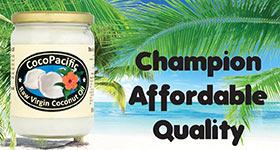|
|
Using Nutrition Safely |
|
With Christmas just passed some people may try to repair the damage done to their systems during the festive season by doubling up on their supplements. But, as Margaret Moss explains, supplementing is not that simple |
Many people take a do-it-yourself approach to nutritional supplements. The trouble is that human biochemistry is very complicated. It is easy to take the supplements you do not need, and to miss out those that would really help you. Taking too much of one nutrient can make you short of another. Nutrients work as a team. Taking just one is unlikely to work. Some nutrients are toxic if you take too much, and some brands include harmful additives. ...or selenium Making too much cysteine
You can contact Margaret at the Nutrition and Allergy Clinic Click here for more articles Click here for LINKS to manufacturers of nutrition and food supplements. First Published in 2007 |









